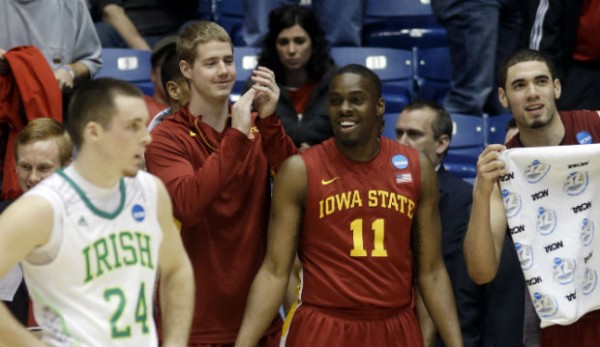Posted by nvr1983 on September 10th, 2013
Bennet Hayes is an RTC columnist. He can be reached @HoopsTraveler.
Selection Sunday rarely leaves us unsatisfied. Sure, there will be questionable inclusions in the field and a handful of notables left out of the bracket, but give me a shout when you find a college basketball fan who counts themselves as a Selection Sunday detractor. The same cannot be said when it comes to the fad that is quickly becoming college basketball’s second most important selection process – the immediate eligibility transfer waiver. Maybe we are all a bit starved for relevant college hoops information, but in these dog days of summer the NCAA’s administration of the transfer waiver has become a definite hot-button topic. Two cases in particular have stirred the pot: the rejection of Rutgers transfer Kerwin Okoro, who lost two family members within a year and sought to be closer to the rest of his family, and the denial of wannabe Minnesota Golden Gopher Raheem Buckles due to FIU’s APR issues, but only after a former FIU teammate was granted the same waiver that Buckles sought. Many different outlets have weighed in on the issue, but only one thing is clear – there is no perfect solution.

Kerwin Okoro’s Failed Immediate Eligibility Hardship Waiver Has Left Many Asking For Answers From The NCAA (Credit: WNCN.com)
One of the more supportive analyses of the NCAA and their waiver selection process comes from John Infante, who believes that in the big picture, “the waiver system is one of the NCAA’s success stories.” He does admit to the many individual failings when it comes to the enactment of the system and clamors for increased transparency, but the above point is one that many seem to miss. There may have been a number of cases, especially of late, that don’t seem fair, but we forget how many lives have been aided due to the existence of the waiver. Critics of the mere existence of the hardship waiver will argue that a player is free to transfer closer to home even without a waiver, but sitting that year out on the court is a sacrifice that should not be overlooked. Most of these kids have spent their entire lives building for these four years of basketball. Even severely ill (and selfless) parents may seek to avoid them missing that year on the floor, and potentially at all costs. The hardship waiver removes that gut-wrenching decision for student-athletes and their families. As Infante argues, it would be great to know a little more about the process behind the decision-making, but there are student-athletes out there whose lives have been unequivocally improved as a result of the waiver.
Read the rest of this entry »
| ncaa criticism, player eligibility, player transfers
| Tagged: feature, kerwin okoro, raheem buckles
Share this story











































